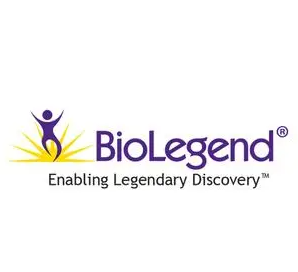Product Details
- Verified Reactivity
- Human
- Antibody Type
- Monoclonal
- Host Species
- Mouse
- Immunogen
- Recombinant human amyloid beta (Aβ1-40) protofibrils
- Formulation
- Phosphate-buffered solution, pH 7.2, containing 0.09% sodium azide
- Preparation
- The antibody was purified by affinity chromatography.
- Concentration
- 0.5 mg/mL
- Storage & Handling
- The antibody solution should be stored undiluted between 2°C and 8°C.
- Application
-
IHC-P - Quality tested
WB - Verified - Recommended Usage
Each lot of this antibody is quality control tested by formalin-fixed paraffin-embedded immunohistochemical staining. For immunohistochemistry, a concentration range of 1 - 10 ?g/mL is suggested. For western blotting, the suggested use of this reagent is 2 - 10 ?g/mL. It is recommended that the reagent be titrated for optimal performance for each application.
- Application Notes
This clone does not cross react with full length APP protein.
- RRID
- AB_2861107 (BioLegend Cat. No. 871201) AB_2861108 (BioLegend Cat. No. 871202)
Antigen Details
- Structure
- Amyloid precursor protein is a 770 amino acid protein with a molecular mass of ~100 kD. According to the UniProtKB database, APP (ID# P05067) has 11 isoforms (34 to ~90 kD) and the 770 form has been designated as the canonical form. Isoform APP695 is the predominant form expressed in neuronal tissue. Isoforms APP751 and APP770 are widely expressed in non-neuronal cells. Isoform APP751 is the most abundant form in T-lymphocytes. Aβ denotes peptides of 36-43 amino acids generated from cleavage of APP by secretases. Aβ has an apparent molecular mass of about 4 kD.
- Distribution
-
Tissue distribution: Primarily nervous system, but also adipose tissue, intestine, muscle
Cellular distribution: Cytosol, endosomes, nucleus, plasma membrane, extracellular, and Golgi apparatus - Function
- The normal function of Aβ is not well understood. Several potential physiological roles have been proposed, including: activation of kinase enzymes; protection against oxidative stress; regulation of cholesterol transport; transcription factor, and as an anti-microbial agent.
- Interaction
- Tau, Prion
- Cell Type
- Neurons
- Biology Area
- Cell Biology, Neurodegeneration, Neuroinflammation, Neuroscience, Protein Misfolding and Aggregation
- Molecular Family
- APP/β-Amyloid
- Antigen References
-
- Kumar A, et al. 2015. Pharmacol. Rep. 67(2):195.
- Sadigh-Eteghad S, et al. 2015. Med. Princ. Pract. 24(1):1.
- Hampel H, et al. 2015. Expert Rev. Neurother. 15(1):83.
- Puig KL, et al. 2012. Exp. Gerontol. 48(7): 608.
- Selkoe DJ, et al. 2016. EMBO Mol. Med. 8(6):595.
- Walsh DM, et al. 2007. J. Neurochem. 101(5):1172.
- Gene ID
- 351 View all products for this Gene ID
- UniProt
- View information about beta-Amyloid on UniProt.org








